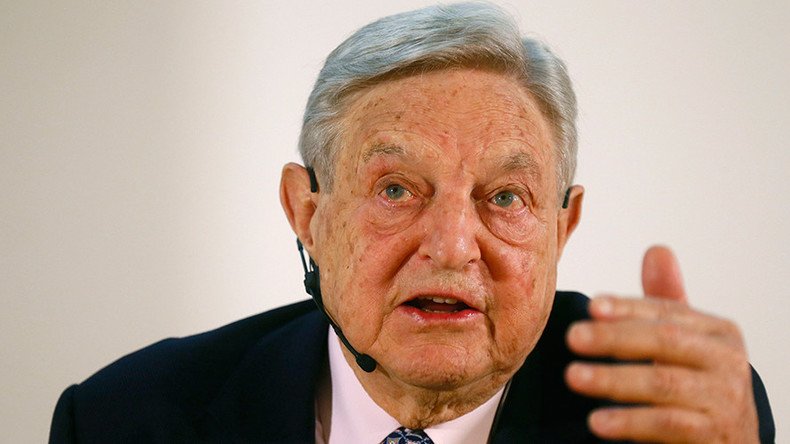Soros Foundation promoted drug legalization worldwide - Russian official

The plan to legalize marijuana in the US was developed for export to foreign countries, and the Soros Foundation and other NGOs have sponsored reports promoting the spread of soft drugs, the head of the Russian anti-drug agency FSKN said in a TV interview.
Speaking on TV channel Russia-24, Viktor Ivanov said the illegal drug trade in the western hemisphere had caused the rise of thousands-strong cartels that have started to oppose local governments through political demands and armed struggle. “This is the reason why the Soros Foundation has sponsored a number of reports, including those in the London School of Economics,” he stated.
Ivanov also explained that the referenda on the legalization of medical recreational marijuana in various US states had been held in Spanish, possibly because the whole plan had initially been developed for Latin American nations.
Once started in the United States, the idea of legal marijuana was spread throughout South and Central America by US-based NGOs such as the Soros Foundation and the MacArthur Foundation, the official claimed.
READ MORE: ISIS uses Turkey for trafficking heroin to Europe – Russian anti-drugs chief
In July Russian prosecutors declared the Soros Foundation and the MacArthur Foundation “undesirable groups.” The move was prompted by reports from regional authorities that were concerned about alleged subversive activities by certain organizations.
Under Russian law all citizens and organizations are banned from any cooperation with undesirable groups under threat of administrative fines. Members of banned NGOs who persist in their intention to carry out activities on Russian territory can face prison sentences of up to six years.
President Vladimir Putin has ruled out the possibility of the legalization of soft drugs in Russia. The main argument is that marijuana consumption often makes people more open to the idea of “hard” drugs that cause addiction and ruin lives.
READ MORE: Web watchdog threatens to block Wikipedia in Russia over drug-related content
Viktor Ivanov earlier urged the international community to jointly concentrate on fighting “planet-scale” centers producing illegal drugs, such as Afghanistan. In addition, Ivanov called upon all countries interested in countering the drug threat to create a global alliance for the alternative development of Afghanistan through forced industrialization.
Other measures included an international sanctions list targeting landlords who profit from drug production, and also making the destruction of opium and marijuana fields an official objective for the International Security Assistance Force.












